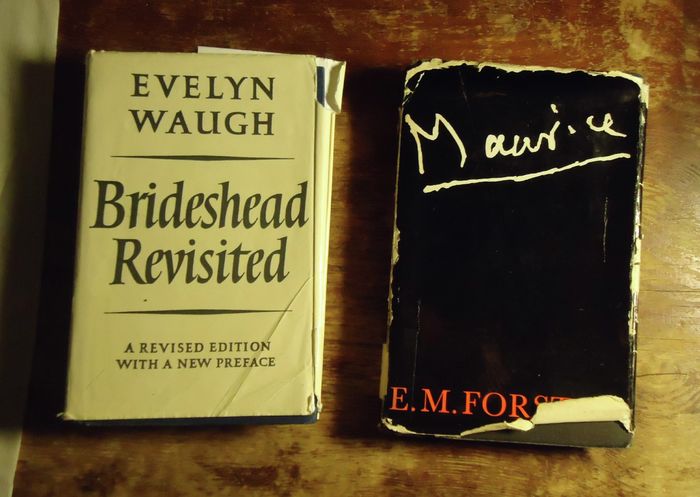What on earth is Cambridge culture?
Ben Birch thinks about the University’s legacy and asks what kind of culture we are cultivating today

Last week, I was subjecting a friend to another tirade about the difficulties of being a Varsity arts writer in Cambridge. In response to once again having to sit through this rant, they smiled and recited an epigram that I’d never heard before: “the nearest culture to Cambridge is London”. I was slightly taken aback. It was as if, walking over ancient cobbles and passing through centuries old cloisters of the colleges, I couldn’t fathom an absence of culture in this city.
“I’d made the mistake of thinking that the history of the university was synonymous with its culture”
Cambridge is a storied and inimitable place, and I had assumed that this was directly associated with its culture. Who can blame me? To walk past the front gate of St John’s and see John the Evangelist peering down at you or to sit by the four-hundred-year-old mulberry bushes in Christ’s is to be a part of a luminary tradition from Milton to Nabokov and, frankly, a lot of pressure. But to think this is to make a kind of category error. I’d made the mistake of thinking that the history of the university was synonymous with its culture. Our history is only a single facet of what we can begin to call Cambridge. We might look back fondly and aspire to the grandeur of the university’s alumni, but surely that in itself does not constitute a ‘culture’?
The roots of the word ‘culture’ are agricultural. Edward S. Casey writes that “to be cultural, to have a culture, is to inhabit a place sufficiently intensive to cultivate it — to be responsible for it, to respond to it, to attend to it caringly”. We should ask what it is at this moment that Cambridge is supposedly cultivating.
Contemplating this question can quickly turn into an exercise in cynicism. In picturing the average Cambridge student, it is easy to conjure up images of a dimly lit college library in Easter term filled with tired and feeble students. At the end of every academic year, each cohort of graduates is a kind of harvest in Cambridge’s culture. In this way, we might liken the University of Cambridge to a mushroom farm. Like mushrooms, exam term students live in the dark and feed off whatever they can get their hands on. Perhaps, though the harvest is bountiful, what we are cultivating is somewhat emaciated. While this is far too cynical to be realistic, it is important to remember this when we picture what a modern Cambridge culture looks like.
“noses are not meant for grindstones and you are not your degree”
In recent times, the writers of this respectable publication have written articles asking questions about our lack of culture. Writers have asked, “where is the Cambridge novel?” as we jealously read Waugh’s Brideshead Revisited over the shoulder of Oxford undergraduates. Several articles now have tried to identify just “what is the problem with Cambridge’s band scene?” and why has there never been a truly great band from the university. Clearly, people feel that there is a kind of cultural absence within the University. This institution is no longer a place where the select elite are trained up to join the clergy, but rather a multi-vocal space for those who love what they do.
There is no doubt that the Wikipedia list of notable Cambridge alumni will continue to grow with the years, but we should remember what it is exactly that we wish to get out of this place. The incredibly high quality and quantity of the work that is produced by the students here sometimes seems to come at the cost of cultivating the way of life for which the University and its members will be truly remembered.
There is something quite preachy about this concluding moral. In reality, cultivating a different way of life is a simple and unglamorous thing. Change your scenery, take your headphones out on your morning walk, pick up an instrument, go see a play – noses are not meant for grindstones and you are not your degree.
 News / Cambridge academics stand out in King’s 2026 Honours List2 January 2026
News / Cambridge academics stand out in King’s 2026 Honours List2 January 2026 Comment / Plastic pubs: the problem with Cambridge alehouses 5 January 2026
Comment / Plastic pubs: the problem with Cambridge alehouses 5 January 2026 News / Cambridge businesses concerned infrastructure delays will hurt growth5 January 2026
News / Cambridge businesses concerned infrastructure delays will hurt growth5 January 2026 News / AstraZeneca sues for £32 million over faulty construction at Cambridge Campus31 December 2025
News / AstraZeneca sues for £32 million over faulty construction at Cambridge Campus31 December 2025 Interviews / You don’t need to peak at Cambridge, says Robin Harding31 December 2025
Interviews / You don’t need to peak at Cambridge, says Robin Harding31 December 2025









